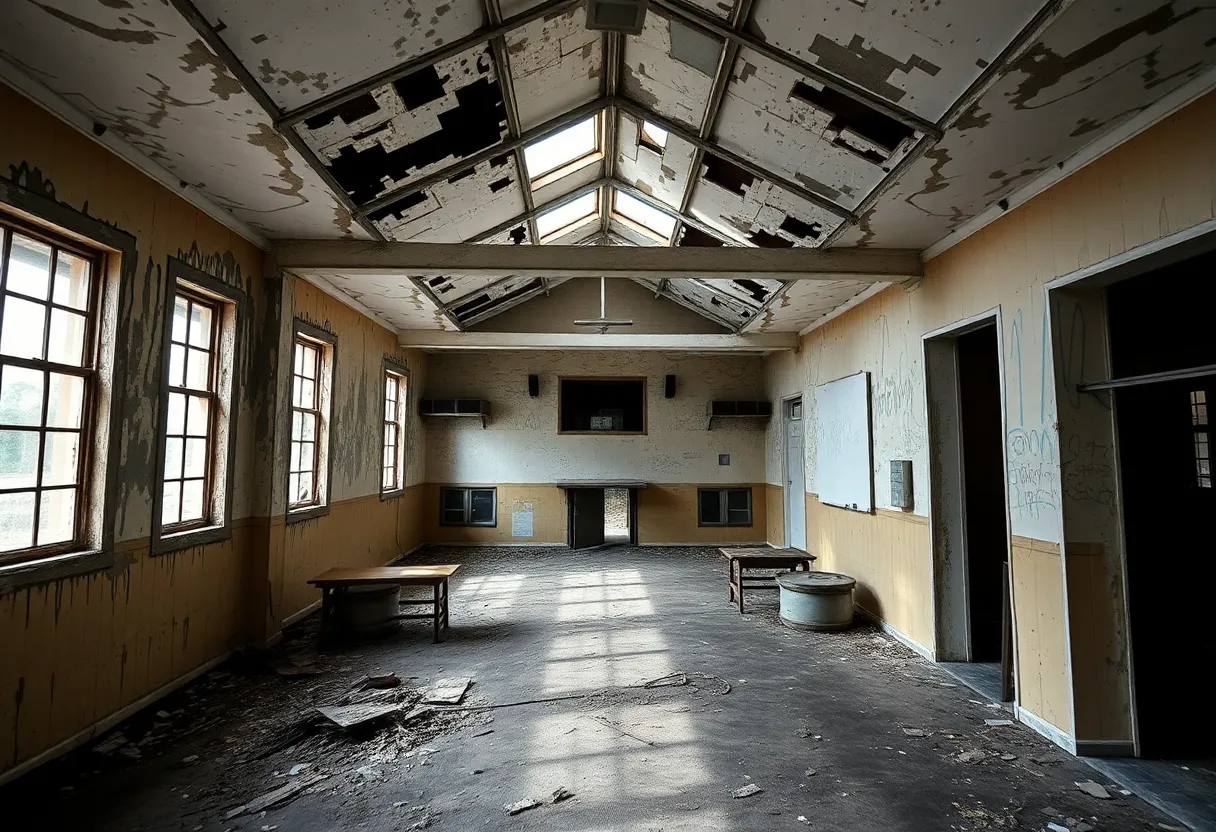News Summary
Redd Elementary School, part of Richmond Public Schools (RPS), is under fire for neglecting serious mold and asbestos issues. Reports from a concerned teacher have highlighted alarming conditions, including extensive mold growth and insufficient air quality management. With a history of inadequate inspections and a staggering $1.5 billion needed for repairs across RPS facilities, parents, educators, and health experts are urging immediate action to protect the well-being of students and staff from these hazardous conditions.
Redd Elementary’s Troubling Years of Neglect: Mold and Asbestos Concerns Arise
Richmond Public Schools (RPS) is facing serious scrutiny after alarming reports of _mold and asbestos_ contamination at Redd Elementary. A teacher, Susan Hudgins, raised red flags about the deteriorating conditions of the school, revealing not only the presence of _black mold_ in the library but also ongoing issues related to air quality. The timeline of events surrounding the start of the new school year has many parents and educators concerned about the safety of students and staff.
Stunning Mold Discovery on First Day of School
The 2025-26 academic year started on a grim note when Hudgins shared startling photographs showcasing _extensive mold growth_ that she claimed was unprecedented in her experience. Despite RPS’s assurance that the _mold issue_ has been addressed, concerns linger as a letter confirming the safety of the building arrived only days before students were scheduled to return. Reports of staff members developing symptoms such as sneezing and coughing prior to the students’ arrival have added to the disquiet.
The Air Quality Report: An Underscoring Concern
Multiple requests for an air quality report were supposedly fulfilled with the release of a document on August 14. Following her discoveries, Hudgins sent numerous emails to Superintendent Jason Kamras during the summer months, seeking clarification on the _building’s safety_. Although the air quality report reassured that the building was safe for occupancy, it also noted that the auditorium remains closed for remediation due to previous mold issues. This raises questions regarding the efficacy of RPS’s remediation processes and overall _building management_.
Asbestos: A Hidden Danger Lurking in the School
In addition to mold issues, an air quality assessment from February 2024 confirmed the presence of _asbestos_ within Redd Elementary. Alarmingly, a lack of proper inspection protocols led to a shocking 15-year gap. Federal regulations mandate that schools reassess _asbestos-containing materials_ every three years. However, the last documented inspection of Redd Elementary took place in 2009, highlighting significant lapses in essential upkeep and safety measures. This omission has drawn scrutiny as RPS investigates the reasons behind the oversight and the implications for student and staff safety.
Impact on Other RPS Facilities
Redd Elementary is not alone in this troubling scenario. Frances W. McClenney Elementary School has also reported _serious air conditioning issues_ that further complicate the already challenging environment for educators. Overall, RPS estimates that a staggering _$1.5 billion_ is needed for repairs and upgrades across its facilities, with an immediate requirement for nearly _$44 million_ in the coming years. Notably, HVAC upgrades comprise a significant 19% of the urgent repairs indicated.
Aging Infrastructure: The Hidden Cost
The average age of Title I buildings within the RPS is a striking _86 years_, raising concerns about the reliability of the infrastructure in terms of health and safety. Many teachers at Redd Elementary have documented ongoing struggles with _water damage, mold, and possible asbestos exposure_, revealing a systemic neglect of facilities over the years. Furthermore, photos from mid-July depicted the concerning conditions in the Redd Auditorium, pointing toward an urgent call for assessments and appropriate actions.
Future Plans for RPS Facilities
RPS is in the process of developing a _10-year plan_ to prioritize repairs and secure necessary funding for construction projects. As seen in the recent $30 million renovation of William Fox Elementary School post-fire, the district is committed to improving facilities but is also clearly faced with extensive challenges that demand immediate action. The revelation of these issues further solidifies the need for a coordinated response to safeguard students and staff against health risks associated with aging and neglected school structures.
Without proper intervention, the combination of _mold, asbestos, and lack of maintenance_ poses a grave threat to the well-being of those teaching and learning within RPS, necessitating prompt action to safeguard health and safety on campuses.



















